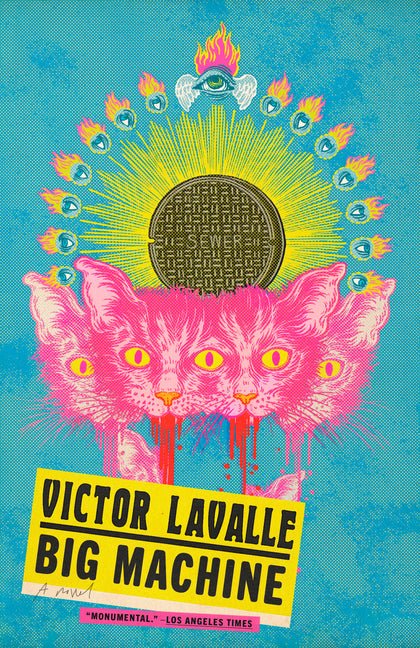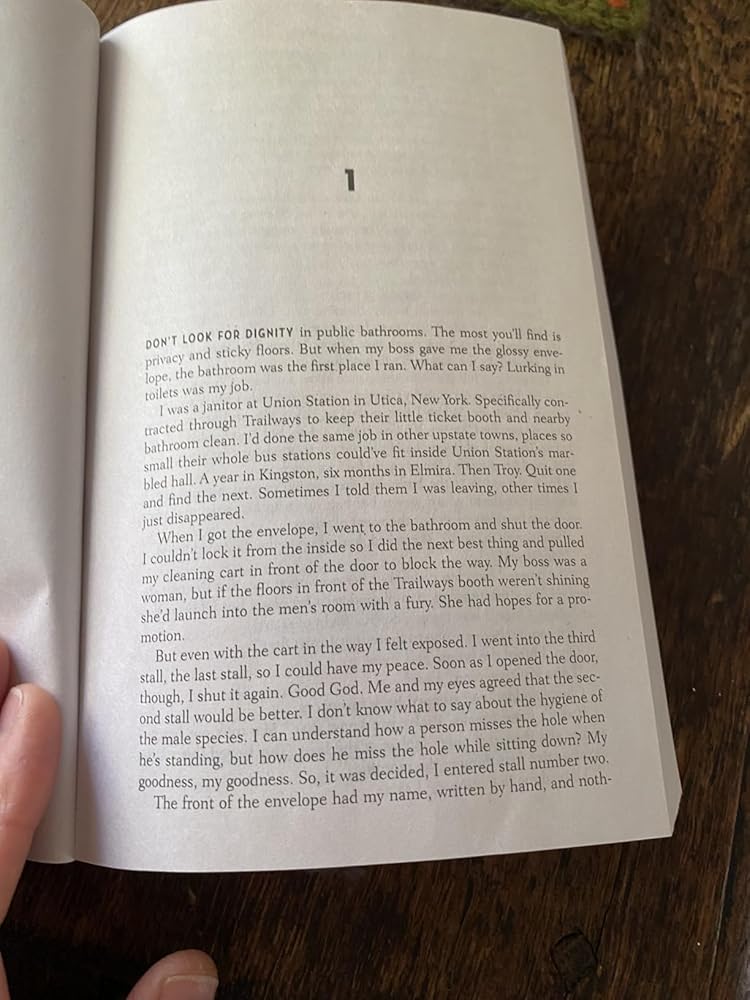Random House Publishing Group
Big Machine
Couldn't load pickup availability
A "haunting and fresh" (Los Angeles Times) novel about doubt, faith, and the monsters we carry within us that "[draws] comparisons to the work of Ralph Ellison and Thomas Pynchon" (The Wall Street Journal)
"Big Machine is like nothing I've ever read, incredibly human and alien at the same time. Victor LaValle writes like Gabriel García Márquez mixed with Edgar Allan Poe."--Mos Def
ONE OF THE BEST BOOKS OF THE YEAR: Los Angeles Times, The Washington Post, Chicago Tribune, Publishers Weekly
Ricky Rice is a middling hustler with a lingering junk habit, a bum knee, and a haunted mind. A survivor of a suicide cult, he scrapes by as a porter at a bus depot in Utica, New York, until one day a mysterious letter arrives, summoning him to enlist in a band of paranormal investigators comprised of former addicts and petty criminals, all of whom had at some point in their wasted lives heard what may have been the voice of God.
Infused with the wonder of a disquieting dream and laced with Victor LaValle's fiendish comic sensibility, Big Machine is a mind-rattling mystery about doubt, faith, and the monsters we carry within us.
Winner of the American Book Award and the Shirley Jackson Award
Share
Book Details
ISBN:
9780385527996
EAN:
9780385527996
Binding:
Paperback
Pages:
384
Authors:
Victor Lavalle
Publisher:
Random House Publishing Group
Published Date: 2010-09-03
View full details
Impossible to read due to minuscule font & very light ink used for printing. Also book cover not the same as what was represented on Amazon. Do not buy this very badly produced edition of Victor Lavalle’s book.
A good ride. If you are familiar with Victor’s work then you know what to expect. He delivers well. A nice grounded story with a little monstrosity / fantasy sprinkled in. Looking for a nice fish out of water story starring a former drug addict who follows a mysterious message to a life changing career as a researcher? This will scratch your itch.
Great beginning and a fascinating character in this well-narrated, very odd story. But having finished it, I still wonder what it was about. The set up seemed to suggest something other than what evolved. I keep wondering if I missed something, or if the author was aiming at a readership I'm not part of, comprising people who would have understood due to their own circumstances what the author was getting at. I'll try another LaVelle novel, as this was witty and had its delights. But this one led me down a rabbit hole and I'm not sure it actually led anywhere.
I gave up after about 60 pages.LaVelle devotes far too much time to being profound and mysterious than to telling the freaking story.I don't expect a novel to be constant action, pedal-to-the-metal thrills. So my negative reaction to this book has nothing to do with the slow pace in the first few chapters.I do expect a novel to have a clear structure that starts at A, then moves to B and C. After reading 60 pages I still had no idea what was going on, and I had no reason to care about the characters and no reason to continue reading.My hunch, for whatever it's worth, is that LaVelle is writing the kind of obscure novel that he thinks will impress the snooty college professors you find in some Masters of Fine Arts programs."Those who know that they are profound strive for clarity. Those who would like to seem profound to the crowd strive for obscurity. For the crowd believes that if it cannot see to the bottom of something it must be profound." Nietzche, The Gay Science (1882)
Kind of a crazy, herky-jerky wordsmithing exercise. Lavalle at times shows flashes of brilliant writing and is able to both maintain and develop the two major characters throughout. The plot, well reviewed and summarized by many others, runs smoothly for satisfying stretches and then veers into a ditch and is badly dinged up--wobbles along on a blown tire and shaky steering after that. The sci-fi element doesn't rear its (ugly? perplexing?) head until well into the story and fails to really fit in with what's come before. There are certainly worthy digressions, some masquerading as sub-plots, like the look at odd religious cults and their effect on adherents and the children of adherents, or peephole vistas at the working poor and their struggles to get by and stay both sane and alive. There was good writing here. And yet, this under-educated, under-employed, chronic junkie (albeit an observant one) main character spills out tidbits of high fashion, haute cuisine and historical references that are simply unbelievable and in fact, takes away from the suspension of disbelief that every storyteller need achieve. In the end my reaction was "Why did he write this? To what end? What purpose does this book serve?" Try as I might, I was unable to answer those basic, but all-important questions.




